Veni-grants for ten researchers
The Dutch Research Council (NWO) has awarded a Veni grant of up to €320,000 each to ten researchers of the University of Groningen and the UMCG: Ariane Gayout, Kira Tiedge, Michelle Bruijn, Kostia Gorobets, Arpan Rijal, Amaury de Vicq de Cumptich, Lars de Wildt, Merel Semeijn, Tycho Dekkers and Valerie Wiersma. The Veni grants are designed for outstanding researchers who have recently gained a PhD.
NWO selects researchers based on the academic quality and the innovative character of the research proposal, the scientific and/or societal impact of the proposed project, and the quality of the researcher. The Veni grants, together with the Vidi and Vici grants, are part of the NWO Talent Programme. In total, the NWO has provided Veni funding to 174 researchers nationwide.
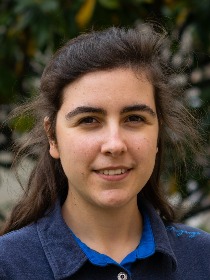
On the fly: understanding multiscale turbulence through animal fight
Ariane Gayout, Faculty of Science and Engineering
When on a plane, turbulence raises concerns over one’s safety due to the shaking of the plane. Animals yet fly continuously in such environment. This project uses insects, like butterflies and ladybugs, to explore how they adapt to turbulence in controlled experiments. Studying the physics of these insects will lead to better understanding of turbulence and novel bio-inspired control for planes and drones based on animal learning.
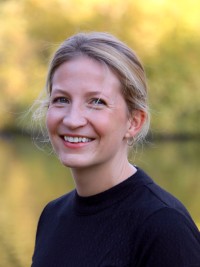
Designing crops for a salty future
Kira Tiedge, Faculty of Science and Engineering
Around the globe, agricultural areas are endangered by an increase of salts in the soil. This salinization reduces the yield and nutritional quality of crops grown in these areas, which poses a serious threat to our food supply. This project investigates how metabolic substances in plants can be used to increase the resistance of important crops to salinization. The results will help to develop new crop varieties that can withstand current and future climate-driven stressors to enable sustainable crop production and ensure food security.
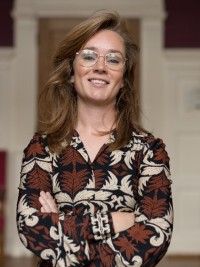
Protecting Homes: understanding the impact of housing and property rights in Dutch eviction cases
Michelle Bruijn, Faculty of Law
Thousands of people are evicted annually in the Netherlands and forced to leave their homes. This has devastating effects on people’s physical and mental health and goes against the fundamental human rights of housing and property. However, how people are protected against evictions is unclear. Bruijn investigates how Dutch courts protect citizens from eviction and assess the impact of the rights to housing and property on these decisions. By combining legal research with innovative machine learning techniques and creating the online tool Phria, this project advances our understanding of eviction protection and the role of human rights in judicial decision-making.
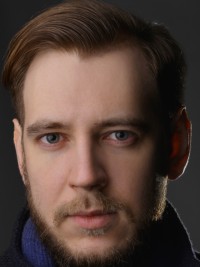
Alternative Legalities: how the Russian invasion of Ukraine fractures international law
Kostia Gorobets, Faculty of Law
Russia justifies the invasion of Ukraine not by pointing at specific rules and treaties, but through historical examples and myths: an appeal to NATO expansion and condemnation of Western hypocrisy are accompanied by references to Russia’s sovereignty, its glorious past and the uniqueness of Russian civilization. This constructs a parallel legal reality in which rules no longer play a central role and which infringes on international law as a universal system of norms for the conduct of states. This legal philosophical research project analyzes this alternative version of international law and its imperialistic potential.
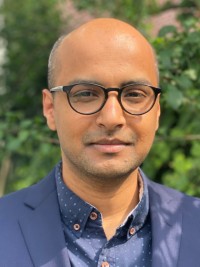
Time out for well being: the algorithmic cure for employee fatigue
Arpan Rijal, Faculty of Economics and Business
Worker shortages and frequent employee turnover are often linked to insufficient employee well-being in the workplace. However, existing personnel scheduling optimization, which develops models and algorithms for work-rest and task allocation schedules, primarily emphasizes efficiency metrics. These highly efficient schedules often come at the cost of stressed employees and even productivity losses. This project proposes a novel approach to personnel scheduling that minimizes physical fatigue which is a large determinant of overall well-being. In doing so, this project will develop mathematical models and algorithms that have the potential to improve employee well-being in a variety of labor-intensive workplaces.
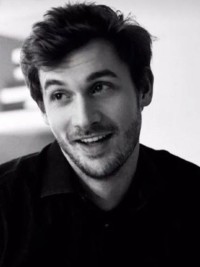
Who benefited from colonialism? The distribution of colonial profits of the Netherlands, 1860s-1950s
Amaury De Vicq de Cumptich, Faculty of Economics and Business
We know that colonizing nations profited greatly from colonialism, but not how these colonial profits were distributed within the nations. Who profited the most? This project will answer this question for the case of the Netherlands. By analyzing recently digitized financial data and succession tax records, the profitability of colonial businesses as well as the primary beneficiaries of colonial investments will be revealed. The outcomes will contribute to a better understanding of our colonial past, provide more nuance to the ongoing discussions on colonial reparations, and support the debate on Dutch wealth inequality.
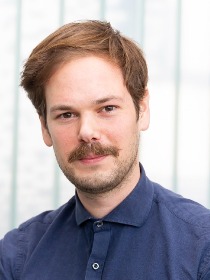
Reorienting global gaming: how Western games adapt to Chinese worldviews
Lars de Wildt, Faculty of Arts
Videogames spread mostly Western worldviews. Because games are so expensive to make, they often stick to tried-and-true formulas. But to appeal to China as a growing market, games must be adapted to Chinese consumers and the strict regulations of their state. But how do they prevent alienating their international audience? So far, game developers have made separate versions of their games for Chinese audiences, which is even more expensive. It is likely that developers are increasingly adapting their games to Chinese worldviews from the start. By studying this process of adaptation, researchers learn how China is re-shaping global media culture.
Fact, fiction and deception in the digital age: a formal semantic exploration of impure discourses
Merel Semeijn, Faculty of Philosophy
Recent advances in artificial intelligence and the omnipresence of social media create new kinds of language-uses, and new roles for existing language-uses. This project in analytic philosophy of language investigates three modern types of speech that are ‘impure’, i.e., that move between ‘fact’, ‘fiction’ and ‘lie’: hoaxes (spread by social media), conversations with chatbots, and gossip-media (e.g., juice-channels). The project combines concepts and formal tools from philosophy, semantics, logic, AI-research, aesthetics and media studies to produce precise theoretical explication of these discourses. Results of this project will empower consumers to develop their independent understanding of modern media.
ADHD: It's not just the child
Tycho Dekkers, UMCG
ADHD is the most commonly diagnosed mental disorder in children. Yet, a potential negative consequence of diagnosing children’s behavior as ADHD is decontextualization: attributing problems predominantly to the child whilst ignoring the interaction between the child and the context. In this project, I will investigate to what extent diagnosing ADHD causes decontextualization, which negative consequences this may have and how these consequences can be prevented.
SUGAR-CART: specific use of glycosylation adaptiations to reinforce chimeric antigen receptor T cells
Valerie Wiersma, UMCG
A major breakthrough in treating patients with end-stage diffuse large B cell lymphoma is Chimeric Antigen Receptor (CAR) T cell therapy. This therapy uses the patients’ own genetically modified immune cells and is effective in ~50% of the patients. To improve CAR T cell therapy, this project will investigate the largely unexplored ‘sugar decoration’ of CAR T cells, which, based on preliminary data, impacts on immune responses. By determining the optimal ‘sugar decoration’, a novel CAR T cell with increased efficacy will be developed. This project will thus contribute to improved treatment options for DLBCL patients.
More news
-
19 December 2025
Mariano Méndez receives Argentine RAÍCES award
-
18 December 2025
Why innovate, and for whom?
-
17 December 2025
Ben Feringa wins Feynman Prize
